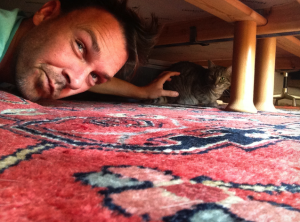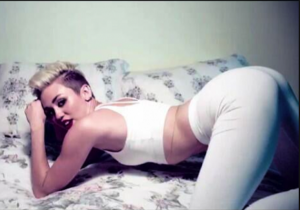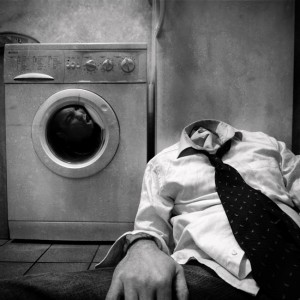SICHA, CLINTON, CYRUS: THOUGHTS ON DIVERSE DEMOGRAPHIC REPRESENTATION IN MEDIA
Choire Sicha’s first book is out. I haven’t read it yet, but it is called Very Recent History: An Entirely Factual Account of a Year (c. AD 2009) in a Large City. The book party was at the East Village gay bar “The Cock,” and I have to say I have never seen it as packed as last night, at least as a pedestrian who quickly walked past it from the outside. There will be a lot of talk about the book, because almost everyone who reads (a lot?) online knows of Sicha. The book follows a group of gay men and chronicles their lives, but for some reason I trust it to not be regressive, even before I read it. I choose to believe Salon, that it will be “among a next wave of books about gay folks as full American citizens that doesn’t bother walking them through schematic journeys meant to stand in for the American Gay Experience.”
The active endeavor to ensure the meaningful participation of diverse individuals in media is integral. It helps reach a realistic and more informed view on the specifics of a broader range of identities. However, the constant overanalyzing of public figures’ gender, race and ethnicity identification choices may end up harming the very purpose they were intended to serve: letting individuals receive merit-based recognition for their objectively high-quality work.
A recent example of excessive analyzing of such nature is that of Hillary Clinton setting up a twitter account. Since the first moment she signed up for the social media website many jokes–some witty, others offensive–have been recurring. An approach that stuck out to me as particularly idiotic was the interpretation of how she chose to order the numerous qualities that define her in her two-line bio. To assert that Hillary Clinton is “anti-feminist” because she starts her twitter bio with “wife” and “mom” before addressing her professional accomplishments, is not only naive and judgmental, it is also self-righteous and flat-out manipulative. Policing the way people choose to present themselves, and telling them they are not to be taken seriously as feminists because they prioritize differently then the average feminist is expected to (?) is childish.
Additionally, who does not know that she also has served as Secretary of State? Pure common sense makes the dialogue surrounding the topic redundant. I think this line of thinking contradicts the true sense of feminism, as in such a system of order the women are provided the agency to identify how to present themselves. What about the people who use humor in their bios? Is that unethical? Are we taking things–such as a public figure’s social media presence–that seriously, and if we are, whose fault is it?
MANIPULATIVE NATURE OF THE DISCOURSE
A piece in The Millions presented a family saga focusing on the case-hardened nature of the way identity is performed by the writer and her grandmother, who seem to fall into the trap of being defined by the social expectations their social identities in how they attain and use power.
“As mixed-race girls, we learned to take what we could from where we could to make a whole. That’s a vulnerable position to be in, susceptible to second-guessing and collapse, but it’s also a crash course in manipulation. Hence the posturing of invulnerability. The multitude of ways that my grandmother and I announced a lack of need, and presented ourselves as in solid control. We don’t need you, we projected, and therefore we may have to ignore what you need as we go about proving that to ourselves once and again. One of the only things I know how to say in Chinese is: Wo zi ze lai. I can help myself.”
After its initial appearance, the ideology of representation has slowly lost a large chunk of its significance. There are times that I feel like I am not supposed to not like non-white writing, even if some of it has to be mundane, dull and entitled. The worst is when the writing is also patronizing and borders delusional. In some ways, if the argument is reduced to powerlessness as its selling point, it cannot easily be powerful when the powerlessness is not real.
I am not Miley Cyrus’ biggest fan, but an open letter addressed to her on The Huffington Post offended me. The writer aggressively requests Miley Curys ought to stop disrespecting “what feels black.” What he means of course, is that she should stop trying to emulate the rap element that currently dominates pop culture: she is white, thus cannot and must not do these things associated with what the author considers parts of the black identity, such as twerking. To claim these as an exclusive element of black culture is silly, and certainly flawed at its core: it leads to a new separation and division among people of different races. It seems like the writer might not be comfortable with a broadly inclusive culture that is not segmented the way he views it, or at least that is what the tone of his letter indicates.
His main issue and the central issue with her is her requesting producers that she was trying to go for a vibe that “feels black.” Her creative endeavor to do that cannot be offensive. It can be successful or not. While it is difficult to decide which is the case, at the end of the video for “We Can’t Stop” she smiles wearing a grill. It is not a mocking grin, rather a smile of awareness. She knows what she is doing, and she is doing it with a sense of humor.
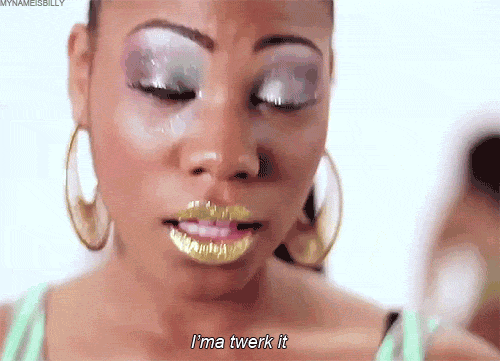
August 7th, 2013 / 1:21 pm
Dressing Up Maggie Nelson
 I first became of aware of Maggie Nelson when I overheard two feminist girls debating whether or not what “she was doing” was ethical. I did not know what “she was doing,” nor did I care. I was forbidden to read her. She was a girl, and for quite a bit it was against the law for me to read girl poets besides, of course, Sylvia. The ban against girls began when a teacher (another feminist, and certainly not the catty, commendable kind) assigned us the Sharon Olds’s poem “The Language of the Brag.” The poem perpetuates the base boast: “I have done what you wanted to do, Walt Whitman, / Allen Ginsberg, I have done this thing.” Oh bother! A demographic whose primary goal is to be like two hairy free-verse guzzling perverts will elicit neither esteem nor heed from me. But then another teacher (a boy one) suggested I read Ariana Reines. Ariana isn’t an intolerably gregarious gay and she isn’t a beatnik-hippie sodomite. Ariana is a monster. In one poem in The Cow, she munches her own poop, sips her throw up, and goes down on herself. She is “self-contained”: disciplined and exacting. She is a sword-sharp: the antithesis of the free verse commoners who are as loose and watery as Barack H. Obama’s negotiating skills.
I first became of aware of Maggie Nelson when I overheard two feminist girls debating whether or not what “she was doing” was ethical. I did not know what “she was doing,” nor did I care. I was forbidden to read her. She was a girl, and for quite a bit it was against the law for me to read girl poets besides, of course, Sylvia. The ban against girls began when a teacher (another feminist, and certainly not the catty, commendable kind) assigned us the Sharon Olds’s poem “The Language of the Brag.” The poem perpetuates the base boast: “I have done what you wanted to do, Walt Whitman, / Allen Ginsberg, I have done this thing.” Oh bother! A demographic whose primary goal is to be like two hairy free-verse guzzling perverts will elicit neither esteem nor heed from me. But then another teacher (a boy one) suggested I read Ariana Reines. Ariana isn’t an intolerably gregarious gay and she isn’t a beatnik-hippie sodomite. Ariana is a monster. In one poem in The Cow, she munches her own poop, sips her throw up, and goes down on herself. She is “self-contained”: disciplined and exacting. She is a sword-sharp: the antithesis of the free verse commoners who are as loose and watery as Barack H. Obama’s negotiating skills.
Obviously after I discovered Ariana and the rest of Rebecca Wolff’s spitfire songstresses my ban against girl poets had to be banned. This meant I could finally read Maggie, which turned out to be marvelous. Maggie is obsessed with ghastliness, terror, and the dead. She devotes “years of compulsion, confusion, and damage” writing about her Aunt Jane, a girl who was viciously murdered while returning home from college. Moreover, she’s compelled by one of the most blessed, articulate, and mischievous girls to ever be forced to live on earth… Anne Frank! “But who can guess / what Anne would have said / about the last place she went,” Maggie tantalizes. Indeed, Maggie has outstanding tastes and curiosities, so I will provide her with three outfits so that she feels fabulous in her wonderfully horrific world.
House Wife Blues: Plath, The Bell Jar, and Writerly Neuroses

Yesterday, my boyfriend and I were out walking the dog, and I was feeling shitty about work as usual. Rounding the corner where the Bay meets the roadway, sun setting pinkly, I blurted out, “Sometimes I just wish I could be a housewife.” He looked at me and said, “Me too.”
That was the end of it. Which pissed me off even more. I wanted to have a legitimate conversation about what it means to be a housewife (which, by the way, I could never be in the 19050s sense), the fact that it’s not even an option anymore for most women. We’re worker bees now, too. It’s only fair. If I want to stay home, which I kind of do, I have to figure out a way to pull in enough income to pay the mortgage on the house I bought all by myself. I have to be able to pull my weight. Not to mention take care of the dogs, do the laundry, make dinners–all because I’m home, which somehow still means, not doing anything at all. My boyfriend would never say or think these things, by the way, but I would. I struggle with these concepts because I would feel guilty if I had the luxury to write. As if writing isn’t work. Writing poetry isn’t work, it’s what you do in your spare time.
In her essay “The Bell Jar at 40,” Emily Gould writes of Sylvia Plath:
Lineage: justifiable matricide vs. I mothered you hoes
Do you feel a duty to read and acknowledge your literary, theoretical, and musical foremothers? Do you feel obligated to know the canon even though you don’t find it relevant to you? Do mothers really know what their daughters want? Are you angered by ignorant people of the younger generation who haven’t taken the time to read the foundational texts? Is Nicki Minaj arrogant for not acknowledging her debt to Lil’ Kim? Where do you fall on the questions of lineage and inheritance? Some ideas to chew on beneath the cut.
Rest in Unrest
It has even been suggested that I spent six years writing my last novel in order to create a demand that cannot be filled. Basic Black With Pearls has had rave reviews and has been bought by William Morrow Company in New York. Success and 60 cents will get me a ride on the subway. No one can find a copy of my novel in the bookstores.
First published age 45.
Did, but did not enjoy, raising rabbits for food.
94 is way bonus years.
All the literary forms were men’s, all the philosophies were men’s philosophies. … I had to translate these forms into the female
Achieved?
Pointed out that gardens might be an answer to God Money (or that fleas do tricks for food).
RIP Helen. To be avant and overshadowed by a spouse. Push back? Harder? But it happens. But let’s pause.
Theater of Cruelty to Myself
 The French artist Orlan works in various mediums and has been prolific and provocative for years. Her most notorious work uses her body and surgery as an expression of art.
The French artist Orlan works in various mediums and has been prolific and provocative for years. Her most notorious work uses her body and surgery as an expression of art.
“I am the first,” Orlan claims, “to divert plastic surgery from its aim of improvement and rejuvenation.”
These are called “operation-performances.”
She took a digitized version of the “idealized feminine” face (her source material: Leonardo’s Mona Lisa, Botticelli’s Venus, Francois Pascal Simon Gerard’s Psyche, Gustav Moreau’s Europa) and then surgically altered her own face to create this image.
Nine plastic surgeries. She considers her works “sacrificial.” These performances were painful and potentially fatal.
Orlan’s website.
A new essay from Unzipping of Images…Orlan’s Operative: Provocation, Performance, Personhood
Filthy Gorgeous Things
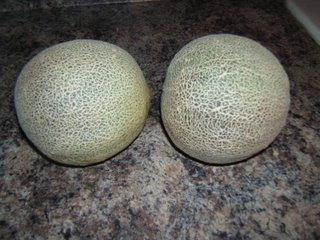
Ryan Manning brought Filthy Gorgeous Things (nsfw) to my attention, which is not a surprise, considering his penchant for soft-core porn (it’s becoming more and more apparent that his virginity is not conceptual). From my brief perusal, FGT is a rather explicit journal about sex related stuff. From the editors:
F/lthyGorgeousTh/ngs is an online magazine about sex for artists, thinkers, sensualists, and fuckers. FGT aims to cultivate innovative content that stimulates us sexually and intellectually. Each monthly issue showcases work from both up-and-coming and established writers, photographers and filmmakers with content oriented around a featured theme.
April 28th, 2009 / 12:41 pm

